J.J. Sedelmaier provides a neat visual retrospective of a device that’s still out there, but which feels like a relic: the non-cordless phone. (I still have one at home, but only because I occasionally do guest spots on radio shows from my house–and the producers always ask if I can do them from a wired landline.)
[Via Mark Evanier]
Tag Archives | Phones
The Phone of the Future is Still Broken
On my way home from Verizon’s iPhone event in New York–I returned to the John F. Kennedy International Airport seven hours after I left it–I wanted to sit down for a moment at the international terminal. Once again, the most convenient place to perch was at a fancy online-enabled pay phone from 1991 which I discovered during a trip last August. Back then, the phone had AT&T signage, was missing most of its keys, and didn’t work. I wasn’t sure if it had been in operational condition anytime this millennium, in fact.
This time, the phone showed signs that it wasn’t an orphan. The AT&T branding was gone, replaced by that of GTL (a company which appears to specialize in providing phones to prisons). And the keyboard had been repaired (mostly: the “3” and “5” keys were missing)
But the phone still didn’t work–no display, no dial tone, no nothing. I wonder when anyone wanted to use it–at least for a purpose other than making a voice call–and was frustrated by its sad condition?

2 comments
Just How Dirty is Your Cell Phone?
 Put the bottom of your shoe to your face. Now, before you ask “has Ed gone plum crazy,” hear me out. Putting your cell phone there is just as unsanitary: that’s how much bacteria lives on those devices according to some microbiologists. Now that you’re thoroughly grossed out, here’s a possible solution–Violight’s UV cell phone sanitizer.
Put the bottom of your shoe to your face. Now, before you ask “has Ed gone plum crazy,” hear me out. Putting your cell phone there is just as unsanitary: that’s how much bacteria lives on those devices according to some microbiologists. Now that you’re thoroughly grossed out, here’s a possible solution–Violight’s UV cell phone sanitizer.
The company has been producing UV toothbrush sanitizers since it’s founding in 2004. Ultraviolet light is a fairly reliable sanitizer, and has seen increasing use when aiming to kill off bacteria. Violight claims its own system eradicates about 99.9 percent of these bad guys, including e.coli, strep, salmonella, listeria and even the H1N1 flu virus in a matter of minutes.
5 comments
5Words for February 17th, 2009
 Except for phones, pretty quiet:
Except for phones, pretty quiet:
Facebook: Users control their info.
Pirate Bay escapes some charges.
Satellite radio may sidestep bankruptcy.
Card counting’s easier with iPhone.
One comment
Did Apple Just Corner the Market on Multi-Touch? I Hope Not!
“We have invented a new technology called multi-touch…and it’s phenomenal.”
–Steve Jobs at the Macworld Expo 2007 keynote that introduced the iPhone
Lemme begin with my usual disclaimers: I’m not a patent attorney. Scratch that: When it comes to the mysteries of patent law, I’m not even a well-informed layman. But I do know that I’m bothered by the news that Apple has apparently successfully patented the basic idea of a computer interface based on multi-touch input. (Here’s its filing at Google Patents; the patent was just awarded.)
I’d love to see a definitive investigation into the concept of multi-touch interfaces and convincing proof of who was the first to come up with the idea, build technology based on it, demo it in public, and name it. And I’m not saying that Steve Jobs’ claim that Apple invented multi-touch is false.
It’s clear, though, that the iPhone’s multi-touch interface didn’t spring onto the market in 2007 without competition or antecedents. Jeff Han of Perceptive Pixel was wowing audiences with iPhone-like magic long before Apple filed its patent on September 5th, 2007:
And Microsoft was clearly working on its Surface tabletop interface at the same time that Apple was inventing the iPhone (I first saw Surface at a Microsoft press event at the Consumer Electronics Show the night before Jobs unveiled the iPhone):
I’ll leave it to others to parse what it is exactly Apple that now controls, and whether it’s possible for anyone else to do multi-touch without asking for a lawsuit. But Apple COO Tim Cook’s insistence last week that Apple will use all available means to protect its intellectual property, combined with the news about this patent, has me worried. As, presumably, they were designed to do.
It’s a little as if someone patented QWERTY at the moment that personal computers first began to take off in the late 1980s. (Or, to choose a real scenario, as if Apple’s 1988 lawsuit against Microsoft and HP had prevented anyone else from doing graphical interfaces that smacked of the Mac.) And while I don’t begrudge Apple’s right to use the U.S. patent system as the U.S. patent system is designed to be used, I think it would be a lousy development if Apple had the right to prevent its competitors from doing multi-touch, and exercised that right via the U.S. court system. There may be examples of patent-related squabbling in Silicon Valley that weren’t fundamentally bad for consumers, but I can’t think of any off the top of my head.
Let’s end with an image from Apple’s patent that does nothing to clarify what it just patented, but is fun to look at:
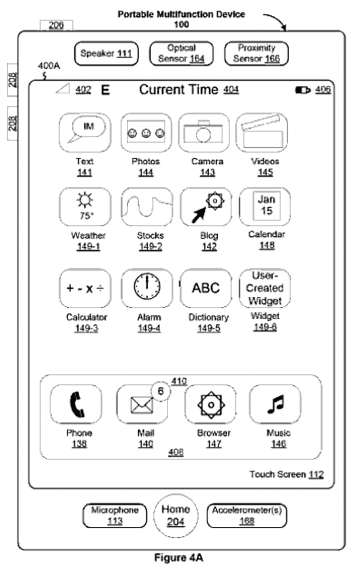
8 comments
Palm Responds to Apple iPhone Patent Warnings
 First, Apple COO Tim Cook seemed to throw a brushback pitch at Palm’s upcoming Pre phone by talking about how vigorously Apple would defend its intellectual property immediately after a financial analyst had mentioned the Pre. Which left lots of folks with the impression that he might be suggesting that the Pre violated Apple patents on multi-touch interfaces and/or other iPhone-related patents.
First, Apple COO Tim Cook seemed to throw a brushback pitch at Palm’s upcoming Pre phone by talking about how vigorously Apple would defend its intellectual property immediately after a financial analyst had mentioned the Pre. Which left lots of folks with the impression that he might be suggesting that the Pre violated Apple patents on multi-touch interfaces and/or other iPhone-related patents.
Now Palm PR head Lynn Fox has responded to the idea that the Pre might tread too closely to iPhone territory, in the form of a quote in a story by All Things Digital’s John Paczkowski:
Palm has a long history of innovation that is reflected in our products and robust patent portfolio (31 pages of patents in Google Patent Search), and we have long been recognized for our fundamental patents in the mobile space,” she told Digital Daily. “If faced with legal action, we are confident that we have the tools necessary to defend ourselves.”
I’ve said that I hope Apple doesn’t sue Palm, but I should clarify: Apple has every right to enforce its patents, but I hope it turns out that it doesn’t have grounds to sue Palm. The Pre has some iPhone-like characteristics, but overall, it’s no iPhone wannabee. It’s a strikingly imaginative device–the most inventive new phone since the first iPhone–and it would be a shame if legal woes interfered with its release. We’ll see.
I’ll end with an image from a 1996 Palm patent filing that probably won’t protect the company from Apple’s current legal maneuverings, should there be any…but so help me, I love old patent drawings:
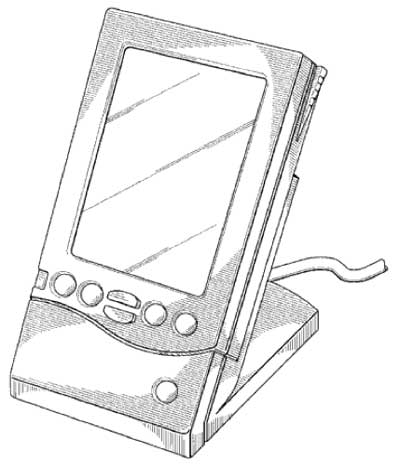
8 comments
For What They’re Worth, Some Apple Phone Patent Filings
I have no idea whether Apple will sue Palm or any other competitor for violating its intellectual property rights. But I do know this: I love patent drawings. So here are a few from Apple patent filings relating to touch interfaces and phones, which I dug up, as usual, at Google Patents. They shed no light whatsoever on Apple COO Tim Cook’s comments today about protecting the iPhone–and some are from filings for patents that haven’t been granted as of yet–but they’re fun to look at…
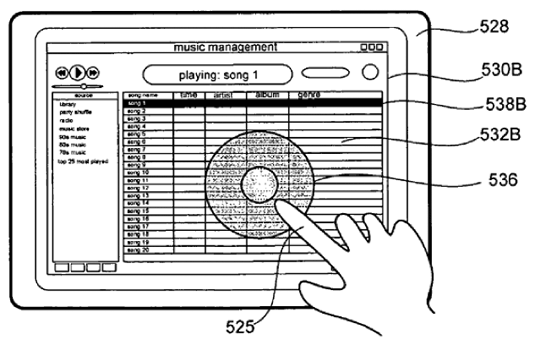
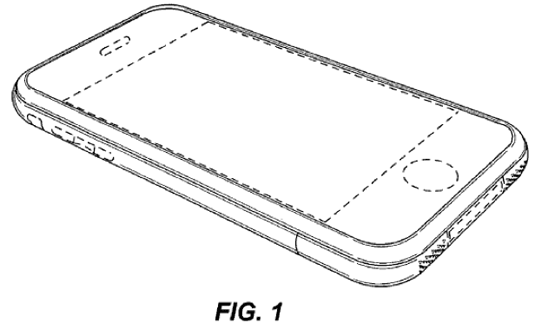
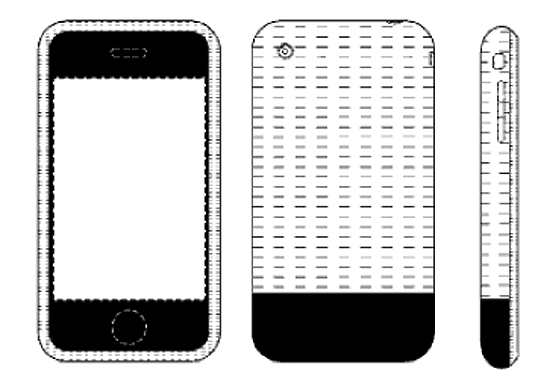
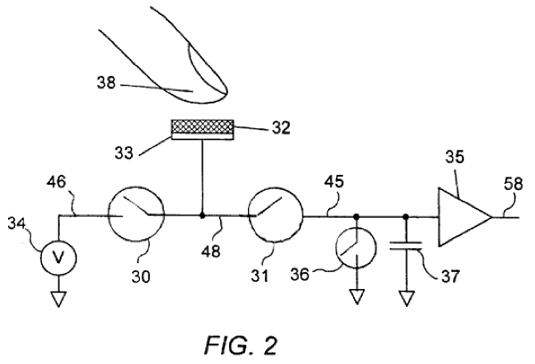
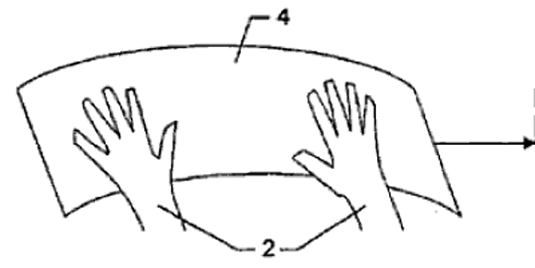
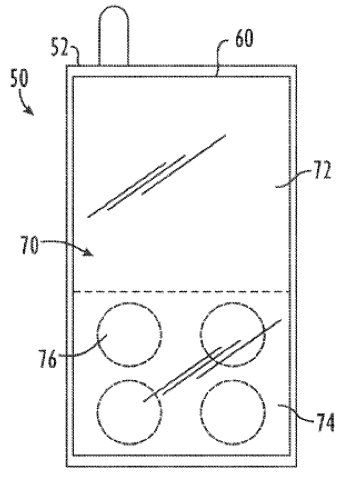
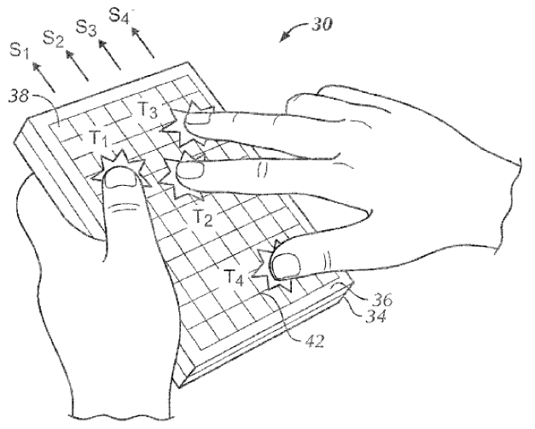
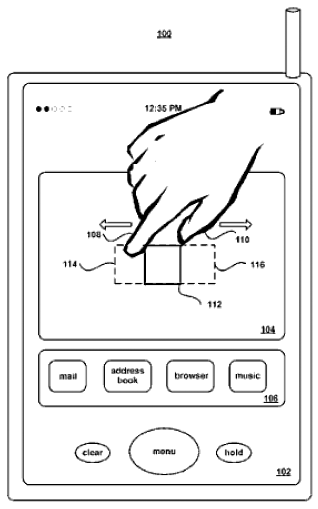
4 comments
Report: Windows Mobile 6.5 to Launch Midyear
 Microsoft will distribute Windows Mobile 6.5 to its partners after it launches the OS at the Mobile World Congress in February, according to a report by DigiTimes. Microsoft will continue to rely upon current business model of working with phone manufacuters to deliver Windows Mobile based products on the market, the report said.
Microsoft will distribute Windows Mobile 6.5 to its partners after it launches the OS at the Mobile World Congress in February, according to a report by DigiTimes. Microsoft will continue to rely upon current business model of working with phone manufacuters to deliver Windows Mobile based products on the market, the report said.
DigiTimes’ sources told it that Windows Mobile 6.5-based mobile devices will hit the market in the third and fourth quarters of the year. They also threw salt on rumors that Microsoft was preparing to launch its own Zune phone.
In November, I wrote that it was plausible that rumors about Microsoft being close to announcing its answer to the iPhone, a Zune device code-named “Pink,” were true. Other coverage in the media corroborated the rumors, including a CNBC report.
Part of my reasoning was that Microsoft did not acquire Sidekick creator Danger Inc. for nothing, and it did appoint Roz Ho (former head of its Mac business unit) to steer its efforts to absorb Danger into its Entertainment and Devices division. Since that time, my opinion has evolved.
I won’t completely rule out that Microsoft could eventually ship a Zune phone, but a knowledgeable source has since convinced me that Microsoft was more interested in Danger’s services. Customers that purchase Windows Mobile devices will have access to those services, which may be branded under Zune.
With Windows Mobile 7 far on the horizon, tailored services could go a long way toward keeping the platform competitive with the likes of Apple, Google and RIM. I guess we’ll just have to wait and see what is announced at Mobile World Congress in Barcelona next month. Until then, here are some leaked Windows Mobile 6.5 screen shots as posted at WMPowerUser.com.
3 comments
Is Apple Going to Sue Palm Over Multi-Touch?
 I don’t want to start any wild, unfounded rumors, but I just got off Apple’s conference call on its quarterly financial results, and towards the end of the call Apple COO Tim Cook started getting very protective of Apple’s intellectual property in the form of iPhone related patents. In answer to a question about iPhone competitors, he had the following to say:
I don’t want to start any wild, unfounded rumors, but I just got off Apple’s conference call on its quarterly financial results, and towards the end of the call Apple COO Tim Cook started getting very protective of Apple’s intellectual property in the form of iPhone related patents. In answer to a question about iPhone competitors, he had the following to say:
“We’re very, very comfortable with where we are competitively…we like competition, as long as they don’t rip off our [intellectual property]…and if they do, we’ll go after them.”
The questioner then brought up Palm’s upcoming Pre phone and its sophisticated multi-touch interface specifically. In response, Cook said:
“I don’t want to talk about any one company…but we will not stand for having our IP ripped off and will use whatever weapons are at our disposal. I don’t know how much clearer I could be than that.”
Okay, what should we make of that? Cook didn’t say that Apple’s about to sue Palm or any other company that makes an iPhone-like phone, but he surely unloaded a warning shot across the bow of any company that would make a phone that was too iPhone-like. And while he didn’t mention multi-touch specifically, Apple has a bunch of multi-touch patents that it surely filed to help keep the iPhone unique. Here’s a nifty drawing from a patent filed in 2006–love that antenna and the fact that the phone appears to be five times as big as its user’s hand!–which I didn’t include in my recent Apple-patent extravaganza:
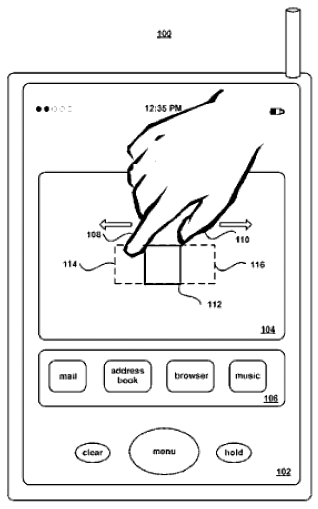
Who else has a multi-touch phone? T-Mobile’s Android-based G1 doesn’t have multi-touch; RIM’s BlackBerry Storm does, although not in particularly iPhone-like form. All evidence suggests that the Pre will sport the most compelling touch-based interface alternative to the iPhone when it shows up (before mid-year in theory).
While the Pre has certain iPhone-esque characteristics, I’m more struck by the many things that are wildly imaginative about its interface; I’d hate to see attacked in court as an iPhone knockoff. Palm has presumably done its best to steer clear of Apple patents all along. So if Tim Cook’s comments this afternoon had a subtext, I hope that it wasn’t “We believe the Palm Pre violates our patents, and we’re not going to let that happen.”
18 comments
A MobileMe Rival From Microsoft?
Neowin is reporting that Microsoft plans to unveil a mobileservice called SkyBox at next month’s Mobile World Congress in Barcelona. It’s supposedly similar to Apple’s MobileMe–although I hope it works a whole lot better–and syncs e-mail, SMS, calendar info, and photos from device to device via the cloud. (Neowin says it “could be” available on phones other than ones that run Windows Mobile–and I’m officially guessing that if it exists, it’ll be free, unlike MobileMe.) Neowin says that Microsoft will launch a small-business version called SkyLine as well, and will open an iTunes App Store-like software download service called SkyMarket.
I plan to be at Mobile World Congress–which is the one best place in the world to learn about what’s new with mobile phones–and will let you know what I find out…
